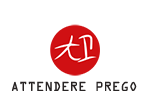Yiquan
Yiquan is a system of spiritual and energetic growth that, similar to taijiquan, focuses on understanding the harmonious movement of the body with spiritual energy and conscious intention. Unlike taijiquan, Yiquan doesn’t have a predetermined form to learn but is based on static positions and small slow movements, which enable the development of deep and fundamental awareness in each movement.
Taoist philosophical notes: In the Taoist tradition, the significance of practicing and training Zhanzhuang in Yiquan can be understood through the fundamental principles of Tao, the path of nature. These principles include the idea of harmony between Yin and Yang, the duality and interconnectedness of all things, and the concept of Wu Wei, acting spontaneously and naturally.
Yiquan training:
1- Zhanzhuang exercises (static positions) teach us to cultivate the “warrior’s firmness,” an inner stability and deep grounding to the earth that reflects the balance between Yin and Yang. By maintaining these positions, one learns to let energy flow through the body without hindrance, similar to the flow of Tao, where everything follows its natural course without resistance. Conscious intention fused with energetic and structural movement during Zhanzhuang represents the principle of Wu Wei. When acting with the right intention and in harmony with energy, one becomes like flowing water, adapting effortlessly to situations, avoiding tensions, and allowing the fluidity of movement. This is not only useful from a martial perspective but also reflects an approach to life in general, embracing the flow of change and learning to be flexible and adaptable.
2- Shili exercises, slow movements, teach us to move consciously in space, developing awareness of the present moment, another fundamental aspect of Taoist philosophy. This awareness in movement allows us to better perceive ourselves, others, and the surrounding environment, cultivating the connection between ourselves and the world around us.
3- TuiShou, paired integration exercises, apply the principles of energetic and structural movement for defense and attack. This underscores the importance of balance and interconnectedness among humans and all things. In Taoist philosophy, the complementarity and unity of opposites are emphasized, and TuiShou reminds us to be in tune with others, perceiving and respecting their energetic movement to respond appropriately.
4- FaLi exercises, to develop the ability to release the energy acquired through Zhanzhuang in explosive strikes, remind us of the concept of Wu Xing, the Five Elements. This theory emphasizes the cycle of creation and destruction among the five elements of nature and teaches us to utilize accumulated energy in a balanced and harmonious way, respecting the natural flows of forces.
Practicing and training in Yiquan go beyond the martial aspect and offer the opportunity to embrace the essence of Taoist philosophy. Through movement, awareness, and harmony with energy, the path opens towards deep inner growth, strengthening of body and mind, and the discovery of our latent capabilities. The practice of Yiquan becomes a journey of introspection and transformation, a path in search of balance and unity with the Tao.

